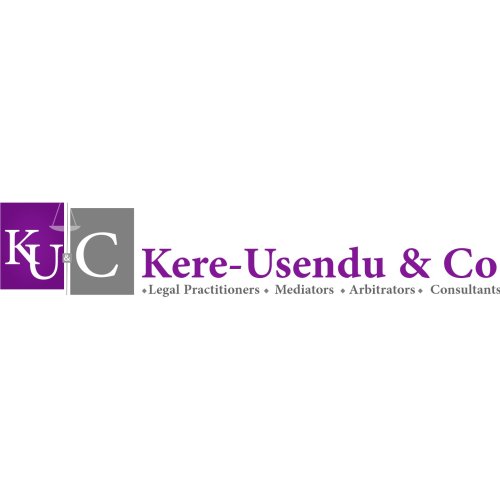Best Job Discrimination Lawyers in Jos
Share your needs with us, get contacted by law firms.
Free. Takes 2 min.
List of the best lawyers in Jos, Nigeria
About Job Discrimination Law in Jos, Nigeria
Job discrimination in Jos, like in the rest of Nigeria, is illegal. Various laws and regulations protect job applicants and employees from being discriminated against based on factors like race, gender, religion, national origin, physical or mental disability, and age. However, despite these laws, job discrimination persists and legal advice is often sought by those who believe they have been confronted with discriminatory practices in workplaces.
Why You May Need a Lawyer
You may need a lawyer in situations where you believe your rights have been violated due to discriminatory practices at work. These cases can include denial of promotions or pay raises due to discriminatory reasons, harassment or hostile work environments based on your protected characteristics, unjust termination, and discriminatory hiring practices. Ensuring you get proper legal representation is vital to protecting your rights and seeking the justice that you deserve.
Local Laws Overview
The Nigerian Constitution, specifically Chapter 4, outlines the fundamental rights of citizens, including the right to freedom from discrimination. Moreover, the Labour Act of Nigeria protects employees from discriminatory practices related to wages and job benefits. There's also the 'Prohibition of Inequality and Discrimination Act' which explicitly forbids all forms of discrimination in the workplace. Understanding these laws and how to effectively apply them to your situation is integral to advancing your claim of workplace discrimination.
Frequently Asked Questions
What is considered job discrimination?
Job discrimination involves treating someone unfavorably because of their features such as race, religion, sex, nationality, age, or physical disability. This can occur in any aspect of employment including hiring, firing, job assignments, promotions, pay, and training.
Can I be fired while on maternity leave in Nigeria?
Employees are protected under Nigerian law during maternity leave and cannot be dismissed on the grounds of taking leave. Should this occur, an employee may have grounds for a wrongful termination claim.
What should be included in a discrimination complaint?
The complaint should include details about the incidents of discrimination, the individuals involved, any attempts made to resolve the situation, and any evidence that supports your claim. It's best to consult with a lawyer to ensure that all necessary elements are correctly included.
Where can I report a case of job discrimination in Jos, Nigeria?
Job discrimination cases can be reported to governmental bodies such as the Nigerian Labour Congress (NLC) or the Ministry of Labour and Employment. A private attorney can also be consulted.
What can I do if I cannot afford a lawyer?
If you cannot afford a lawyer, there are non-governmental organizations (NGOs) and legal aid services that can provide free or low-cost legal assistance to those in need.
Additional Resources
The Nigerian Bar Association (NBA) is a valuable resource for locating experienced attorneys in areas of labor and employment law. The Ministry of Labour and Employment and the Nigerian Labour Congress (NLC) are also crucial resources in providing guidance and enforcing labor laws.
Next Steps
If you believe you have experienced discrimination at work, seek legal consultation immediately. Compile any relevant documentation you may have, including witness statements, records of incidents, or evidence of discriminatory practices. It's recommended to work closely with your attorney to prepare your case and understand your rights under Nigerian law.
Lawzana helps you find the best lawyers and law firms in Jos through a curated and pre-screened list of qualified legal professionals. Our platform offers rankings and detailed profiles of attorneys and law firms, allowing you to compare based on practice areas, including Job Discrimination, experience, and client feedback.
Each profile includes a description of the firm's areas of practice, client reviews, team members and partners, year of establishment, spoken languages, office locations, contact information, social media presence, and any published articles or resources. Most firms on our platform speak English and are experienced in both local and international legal matters.
Get a quote from top-rated law firms in Jos, Nigeria — quickly, securely, and without unnecessary hassle.
Disclaimer:
The information provided on this page is for general informational purposes only and does not constitute legal advice. While we strive to ensure the accuracy and relevance of the content, legal information may change over time, and interpretations of the law can vary. You should always consult with a qualified legal professional for advice specific to your situation.
We disclaim all liability for actions taken or not taken based on the content of this page. If you believe any information is incorrect or outdated, please contact us, and we will review and update it where appropriate.









